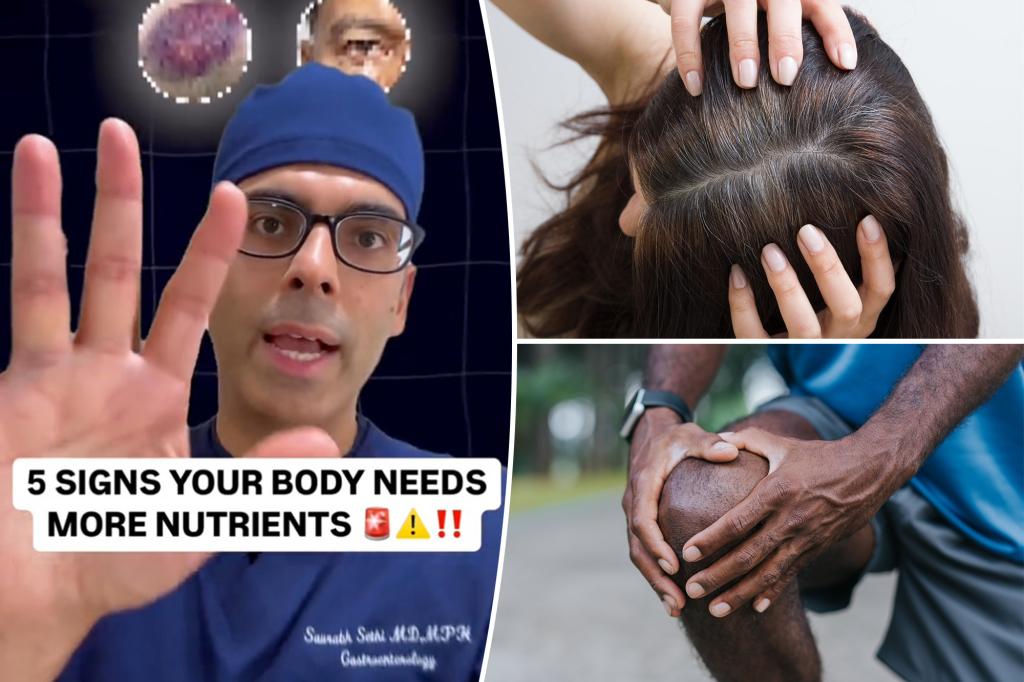A recent study found that over half of the world’s population does not consume enough essential micronutrients such as calcium, iron, and vitamins C and E. Gastroenterologist Saurabh Sethi identified five signs that indicate the body needs more nutrition, including brittle nails, eyelid twitching, clicking of the joints, premature greying of the hair, and bruising easily. Brittle nails may point to a deficiency of protein and iron in the diet. The protein keratin found in nails requires adequate protein intake to stay healthy. Factors like hand washing, nail polish removal, dry weather, and aging can also contribute to brittle nails. Iron-rich foods like red meat, poultry, and spinach can help address this deficiency.
Eyelid twitching could be a sign of magnesium deficiency, which is essential for nerve impulse transmission. Stress, caffeine consumption, and eye strain can contribute to this condition. Magnesium supplementation is often used to address this deficiency, but consulting with a doctor is advised. Clicking of the joints, especially in the knees, could be an indicator of vitamin D3 or calcium deficiency. These nutrients are crucial for bone health and proper absorption of calcium from foods like milk and leafy greens. Premature greying of the hair may be linked to genetics, autoimmune diseases, stress, and vitamin deficiencies, particularly vitamin B12 and copper, which are necessary for red blood cell production and melanin production in hair follicles.
Bruising easily could be a result of aging, genetics, medical conditions like Cushing syndrome, or vitamin deficiencies. Vitamin C is necessary for collagen formation, while vitamin K1 plays a role in blood clotting. Ensuring adequate intake of these nutrients can help reduce the risk of easy bruising. Sethi advises seeking medical guidance to address these signs, particularly if they persist or worsen over time. Adjusting the diet to include a variety of nutrient-rich foods like fruits, vegetables, lean proteins, and whole grains can help prevent micronutrient deficiencies. Additionally, supplementing with vitamins under the guidance of a healthcare provider can help fill any gaps in the diet and support overall health and well-being. By paying attention to these signs and taking steps to address potential deficiencies, individuals can optimize their nutritional intake and support their body’s needs effectively.


